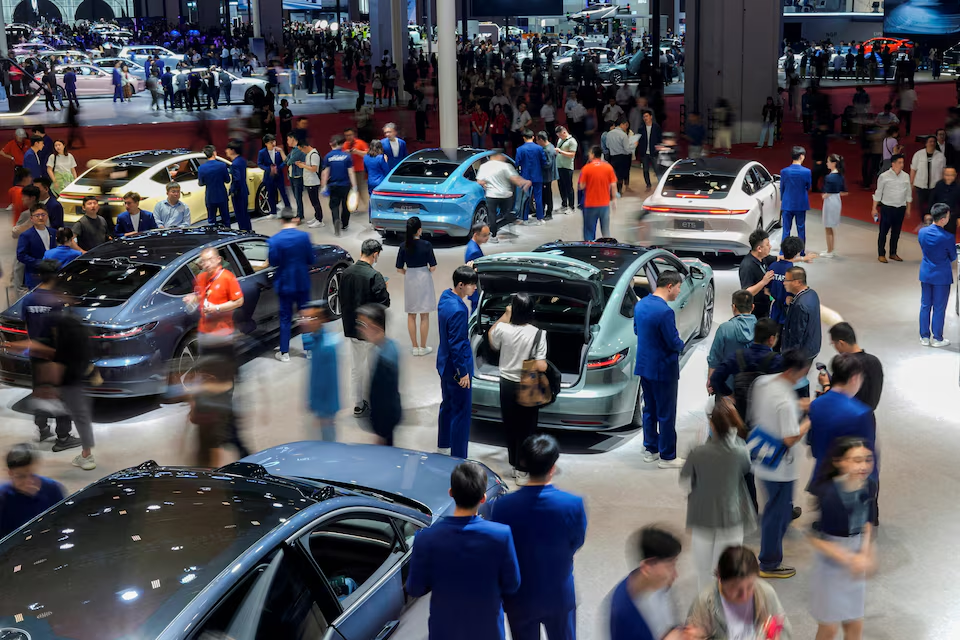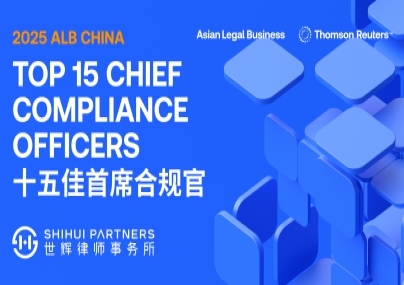
今年2月底,美国拜登政府发表声明,称将采取行动阻止中国电动车进入美国市场——这是继欧盟展开反补贴调查后,半年之内,欧美针对中国电动车产业的二度“开火”。
拜登认为,“来自中国的、接入互联网的汽车和卡车给美国国家安全带来风险,因为这些车的操作系统能把敏感信息传给中国政府”;此外,“这些车辆可能被以远程方式访问或致其失灵”。
2023年,中国电动车生产总量为892万台,出口量超120万台,双双创下纪录。在这样的发展速度下,海外市场对中国电动车产业抱持谨慎态度并不令人意外。
不过,无论最终采取何种措施,美国的行动对中国电动车产业的冲击暂时有限。
通力律师事务所合伙人安随一律师深耕电动车产业服务,他指出:“受美国长期以来的贸易壁垒政策影响,中国新能源车的出口市场主要集中在亚洲、欧洲、非洲、中东、俄罗斯等区域。美国市场目前最大的外来品牌是丰田。”
其次,安律师分析,美国政府把目光聚焦在中国新能源车,可能是看中了“中国制造”的整条产业链,未来希望争取新能源车上游产业链的主机厂、供应链回流美国建厂。不过,由于中国在新能源车产业链,尤其是电控系统、电机技术、电池技术、充电技术等核心板块研发能力强,对美国技术依赖性底,“对于国产新能源车产业链的影响也有限”。
并非首次
实际上,由于新能源车往往具有智能属性,被称为智能手机之后“第二个超级终端”,中国新能源出口车辆的联网、数据收集等问题并非第一次在海外市场遭受挑战。
以欧盟为例,安随一律师介绍道,《欧盟一般数据法保护条例》(GDPR)中对于智能联网汽车涉及到的“欧盟跨境数据传输”就进行了规制。“简言之,中国新能源汽车智能联网系统收集的个人数据如果需要传输至欧盟之外的国家或地区——例如传回中国总部,就会触发GDPR下关于跨境传输的合规义务。”
安律师观察,实践中这给中国新能源车企提出了很高的合规要求,也带来了相当高的合规成本。目前车企的应对方式大体有两种,但都面临些许问题:一种是对个人数据进行匿名化处理,但“现有技术很难实现信息的完全隔离和匿名化,也会随之产生额外开支”。
另一种是设立欧洲分支机构作为名义上的欧洲数据控制中心,“实际上数据处理活动的决策权仍然在中国境内,这种操作也与GDPR的规定相违背”,安律师说。
安律师建议,中国新能源车企还是要及时、积极面对电动车互联性引发的海外数据收集、跨境传输问题,为企业的全球化发展打好基础。他提出了几种思路:“一是聚焦在数据处理源头的隔离上,把车企收集到的数据处理按照区域划分,实现欧洲分支机构与中国总部在数据处理决策权上的隔离,确保欧洲分支机构作为GDPR项下实际的数据控制者。”
“此外,汽车产品配套的APP也需要同步完成相应的数据合规审查与整改,除了满足GDPR合规要求,也要符合当地的数据传输监管,以及欧盟数据保护影响评估(DPIA)要求。”他说。
从“走出去”,到“走上去”
伴随中国电动车快速走出国门,如上所述,海外市场的谨慎态度在预期之中,数据安全之外,中国电动车出口也面临着其他“壁垒”。
安随一律师对此深有体会。他举了“绿色贸易壁垒”的例子:2024年2月欧盟刚刚实施了《欧盟电池和废电池法规》,从2024年7月起,特定电动汽车电池等产品必须申报碳足迹,且到2026年必须拥有“电池护照”才能在欧盟市场销售。
而在今年1月,美国实施的《通胀削减法案》更是直接将使用中国制造商生产的电池组件的车辆排除在税收抵免之外。
安律师说,近些年陪伴中国新能源车行业客户“出海”的过程中,他们深感到海外营商环境正变得更加复杂,但是,“上述贸易壁垒也不全是负面的……如何从公关角度积极应对来自不同国家和地区的具体管制措施,以及用好法律武器尽最大可能实现自己的商业诉求,值得我们去思考。如果应对得当,大部分规制措施还是能够得到妥善处理,并且推动企业往更规范化的方向去发展”。
的确,如中国工信部前部长苗圩所说,中国新能源汽车产业在“上半场”——电动化竞跑中已经实现了质的飞跃,但“下半场”——智能化时代已经来临,新能源车企不仅要 “走出去”,还要“走进去”、“走上去”。
这其中的重要一步,就是从简单的国际贸易、整车出口,逐渐走向全球布局。在安律师看来,中国新能源车企对外投资建厂已经成为一种趋势,“尤其在2023年,各类新闻层出不穷”。
“以泰国为例,一方面泰国政府出台了力度极大的税收减免政策,另一方面泰国本身也积累了比较完善的汽车供应链,因此比亚迪、哪吒、长城汽车、上汽、长安汽车、奇瑞汽车都宣布在泰国投资建厂。如果当地能够给到足够优惠的政策扶持,对于中国新能源车企来说,积极寻求出海机会无疑是好事。”
更复杂的需求
一旦要走出国门,就牵涉更为复杂的法律服务需求,安随一律师指出,中国律师可以在中国新能源车企出海投资大潮中积极承担起项目牵头方的角色,但这也对律师的“工具库”、服务质量提出了挑战。
他指出,中国律师至少要帮助客户解决两个层面的需求。首先是“资质问题”,“从境内投资监管要求来看,境外投资手续、境内车企的业务和数据合规审查,需要专业律师保驾护航”。
其次,针对跨境项目本身,“需要一个既懂境内汽车行业法律法规,也懂境外投资和合规要求的团队,来统筹整体投资架构设计、交易文件或者合作协议,并协助客户寻找当地符合条件的专业律师团队,并负责持续性的沟通和协调工作”。
安律师坦言,以往中国车企在海外投资项目中往往只聚焦在国内对于境外投资的监管要求以及当地对于行业监管牌照等环节,“但在数据合规、境内外合作开发、相关IP权属安排等方面缺乏专业人士指导,往往在事后容易酝酿成争端,其实都可以提早发现和预防”。
如果说前几年新能源汽车行业更多呼求“专精”的律师,如今伴随需求变化,车企要求律师在专精的基础上再次走向“综合化”。
安律师坦言,一方面,培养既专业又懂行业的人才是必不可少的,但律所内的“通力合作”能力也尤其重要。“以通力为例,我们有资产管理、公司商事、争议解决、金融服务、资本市场、投资并购六大专业团队,能够确保所内充分协调,并保障执业水准的一致性。在代表中国新能源车企走出去的过程中,通力已经提供过投资交易、项目合作以及数据合规相关的综合法律服务,还经常在不同法律和商业背景的交易各方之间起到沟通桥梁的作用。”他说。
Chinese EVs face multiple barriers abroad, but proper response could turn crisis into opportunity
At the end of February, the Biden administration announced plans to block Chinese electric vehicles (EVs) from entering the United States market. President Biden expressed concerns that "Internet-connected vehicles from China pose a risk to national security, as their operating systems can transmit sensitive information to the Chinese government." Additionally, "these vehicles could potentially be accessed remotely or malfunction."
It wasn’t the only instance of overseas action against the Chinese EV industry. Six months previously, the European Union initiated a subsidy investigation.
The pushback has been coming at a time when China’s EV industry has been growing in global dominance. In 2023, the country produced a record 8.92 million EVs, with exports surpassing 1.2 million units. Given this rapid growth, the cautious stance of foreign markets is unsurprising.
However, regardless of what measures are ultimately adopted, the impact of the U.S. action on the Chinese EV industry remains limited for now, and that is because Chinese EV makers have been reluctant to lean too heavily on that country. "Due to long-standing trade barriers from the U.S., China's EV exports have primarily focused on Asia, Europe, Africa, the Middle East, and Russia,” says An Suiyi, a partner at Llinks Law Offices.
An believes the U.S. government's focus on Chinese EVs may stem from its interest in the entire "Made in China" industrial chain, with hopes of attracting upstream manufacturers and supply chains back to the US. However, given China's strong R&D capabilities in the EV industry, especially in electronic control systems, motor, battery and charging technologies, "the impact on China's domestic EV industry chain will also be limited."
NOT THE FIRST TIME
In fact, given that EVs often possess smart features, earning them the moniker of "the second super terminal" after smartphones, concerns over their connectivity and data collection capabilities have previously faced challenges in different markets.
Taking the EU as an example, An explains that the General Data Protection Regulation (GDPR) in the EU imposes regulations on "cross-border data transfer" related to smart connected cars. "In essence, if the personal data collected by the smart connectivity systems of Chinese EVs needs to be transferred out of the EU—for instance, back to the headquarters in China—it would trigger compliance obligations under the GDPR."
He observes that, in practice, this sets high compliance demands for Chinese EV companies, also resulting in significant compliance costs. Currently, companies adopt mainly two approaches to address this: One involves anonymizing personal data, but "with current technology, it is difficult to achieve complete isolation and anonymization of data, which also incurs additional expenses."
The other strategy is to establish a European branch to act nominally as the European data control centre, "but in reality, the decision-making power for data processing activities remains within China, which contradicts the provisions of the GDPR," says An.
He suggests that Chinese EV companies should swiftly and proactively address the issues of overseas data collection and cross-border transmission raised by vehicle connectivity, laying a solid foundation for their global expansion. He proposes several ideas: "One is to focus on the isolation at the source of data processing, dividing the data processing collected by the vehicle manufacturers according to regions, and guaranteeing that European branches act as the actual data controllers under GDPR."
"Moreover, the apps accompanying the vehicle products also need to undergo the corresponding data compliance review and rectification, not only to meet GDPR compliance but also to adhere to local data transmission regulations and the EU Data Protection Impact Assessment (DPIA) requirements," he adds.
FROM “GOING OUT” TO “STEPPING UP”
As Chinese EVs rapidly make their way abroad, beyond data security, Chinese EV exports also face other barriers.
An cites the example of “green trade barriers.” In February 2024, the European Union implemented the EU Batteries and Waste Batteries Regulation, requiring certain EV batteries and other products to declare their carbon footprint from July 2024. By 2026, these products must have a "battery passport" to be sold in the EU market.
In January this year, the United States' Inflation Reduction Act excluded vehicles using battery components manufactured by Chinese manufacturers from tax credits.
An says that in recent years, he has found the overseas business environment becoming increasingly complex for Chinese EV clients. However, "the barriers are not entirely negative... How to actively respond to specific regulatory measures from different countries and regions, and how to make the best use of legal means to achieve commercial demands as much as possible, is worth considering. If handled properly, most regulatory measures can be properly dealt with, and it can push Chinese EV companies to develop in a more standardized direction."
Indeed, as Miao Wei, the former Minister of China's Ministry of Industry and Information Technology, said, the Chinese EV industry has made a qualitative leap in the "first half" of the race towards electrification. But with the "second half" – the era of intelligence, it's not enough for EV companies to just "go out;” they also need to "integrate" and "step up."
An important step in this process is to move from simple vehicle exports towards a global layout. According to An, Chinese EV companies investing overseas and setting up factories has become a trend, "especially in 2023, with various news stories emerging."
"For example, in Thailand, on one hand, the Thai government has introduced significant tax relief policies; on the other hand, Thailand itself has accumulated a relatively complete automotive supply chain. Therefore, BYD, Nezha, Great Wall Motor, SAIC Motor, Changan Automobile, and Chery have all announced investments to build factories there. If the local policies are supportive enough, it is undoubtedly beneficial for Chinese EV companies to actively seek overseas opportunities."
Once stepping out of the country, the demand for more complex legal services arises. An says that Chinese lawyers can take on the role of project leaders in the surge of overseas investments by Chinese EV companies, but this also presents challenges to the lawyers' "toolbox" and the quality of their services.
He notes that in the past, Chinese automotive companies often only focused on domestic regulatory requirements and local license issues in their overseas investment projects, "but lacked professional guidance on data compliance, cooperative R&D, related IP rights arrangements, etc. Disputes in these areas are common, and could have been identified and prevented early on."
If in previous years the EV industry called for "specialized" lawyers, the demand has now evolved with the times. Companies are asking lawyers to move towards a "comprehensive" approach on top of their specialization, An points out.


